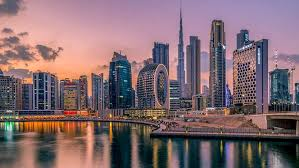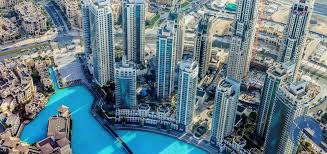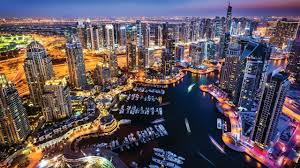Now Reading: UAE Real Estate: 7 Strategic Tax Benefits for Multisite Property Owners
-
01
UAE Real Estate: 7 Strategic Tax Benefits for Multisite Property Owners
UAE Real Estate: 7 Strategic Tax Benefits for Multisite Property Owners

Table of Contents
The UAE real estate sector has long been a magnet for global investors, thanks to its stable economy, forward-thinking governance, and liberal property ownership laws. For multisite property owners—those who manage multiple properties across Dubai, Abu Dhabi, Sharjah, Ajman, and beyond—the landscape is even more rewarding. The UAE offers a suite of strategic tax benefits that make scaling a real estate portfolio not just profitable but also tax-efficient.
Whether you’re an investor expanding across emirates or a property management firm, understanding these seven key tax advantages will help you reduce liabilities, increase ROI, and make smarter decisions in 2025 and beyond.
1. No Federal Income Tax on Rental Revenue

One of the biggest draws of UAE real estate is its zero federal income tax policy. Rental income, even across multiple emirates, is entirely tax-free for individuals. This gives multisite property owners a significant edge, allowing them to retain full profits without having to report or pay income tax at the federal level.
Example: A property owner earning AED 500,000 annually from rentals across Dubai and Abu Dhabi keeps the entire amount—no income tax applies.
2. No Capital Gains Tax on Property Sales
Unlike many global markets, the UAE does not charge capital gains tax on the sale of real estate properties. For multisite owners who frequently buy and sell assets in different emirates, this offers a huge financial advantage. You can liquidate and reinvest gains without erosion due to taxes, enhancing flexibility and long-term compounding returns.
This benefit is especially useful for developers and portfolio managers engaged in short-term flips or long-term appreciation strategies.
3. VAT Exemption on Residential Rentals
Since the introduction of Value Added Tax (VAT) in 2018, most goods and services in the UAE are taxed at 5%. However, residential property rentals are VAT-exempt, meaning landlords do not need to charge VAT on rent paid by tenants.
This applies across all emirates and:
- Simplifies compliance for multisite landlords
- Improves affordability for tenants
- Enhances competitiveness in the rental market
Commercial properties, however, are subject to 5% VAT, so property owners must register for VAT if their taxable turnover exceeds AED 375,000 per year.
4. Unified Property Holding via Offshore or Free Zone Entities

Multisite owners can optimize taxation and asset management by holding properties through offshore companies or free zone entities such as:
- Ras Al Khaimah International Corporate Centre (RAK ICC)
- Ajman Free Zone
- Jebel Ali Free Zone (JAFZA)
These corporate structures offer benefits like:
- No corporate or income taxes
- Full repatriation of profits
- Confidential ownership
- Easier succession planning
- Simplified bookkeeping for multisite assets
Using one entity to hold all UAE-based real estate can also streamline legal, banking, and tax reporting.
5. Inheritance and Estate Tax-Free Environment
In the UAE, no estate or inheritance tax applies on property assets passed to heirs. For multisite property owners, this ensures a smooth transfer of wealth without tax penalties. However, proper estate planning is crucial—especially for expatriates.
To ensure assets across emirates are inherited according to your wishes, it’s recommended to:
- Register a will with DIFC Wills Service Centre or Abu Dhabi Judicial Department
- Specify heirs for properties located in each emirate
- Consolidate multisite assets into a holding structure or trust
This helps avoid complications related to Sharia law distribution by default.
6. Lower Registration Fees Compared to Global Cities
UAE real estate has relatively low property transfer and registration fees, which benefits those who acquire or sell multiple units. Here’s a comparison across emirates:
| Emirate | Registration Fee (%) |
|---|---|
| Dubai | 4% |
| Abu Dhabi | 2% |
| Sharjah | 2% |
| Ajman | 2% |
| Ras Al Khaimah | 1%–2% |
These rates are much lower than global hubs like London (up to 15%) or New York (around 3.9%). For multisite owners making frequent acquisitions, this directly reduces capital outflows.
7. Tax-Neutral Environment for Reinvesting Across Emirates
Because each emirate maintains its own property regulations but shares the same federal tax framework, multisite owners can freely reinvest earnings from one emirate into another without triggering cross-jurisdiction taxes.
For example, profits from a Sharjah apartment sale can be reinvested in Dubai villas or Ras Al Khaimah beach plots without any tax leakage. This encourages real estate diversification and portfolio scaling, without the complexity of national taxation systems.
Bonus Tip: Tax Efficiency via Long-Term Leasing Models
In the UAE, many investors are adopting build-to-rent and long-term leasing models across sites, which can:
- Spread income over a long horizon
- Reduce operational overhead
- Avoid frequent resale cycles (thus benefiting from VAT and transfer fee exemptions)
For multisite portfolios, such models can create predictable, tax-free cash flows.
Conclusion
As the UAE strengthens its position as a global real estate destination, multisite property owners stand to benefit the most—especially from the strategic tax environment. Whether you’re investing in high-rises in Dubai, beachfront villas in Ajman, or commercial plots in Ras Al Khaimah, the zero income tax, capital gains exemptions, and VAT advantages create a uniquely favorable investment climate. watch here





















